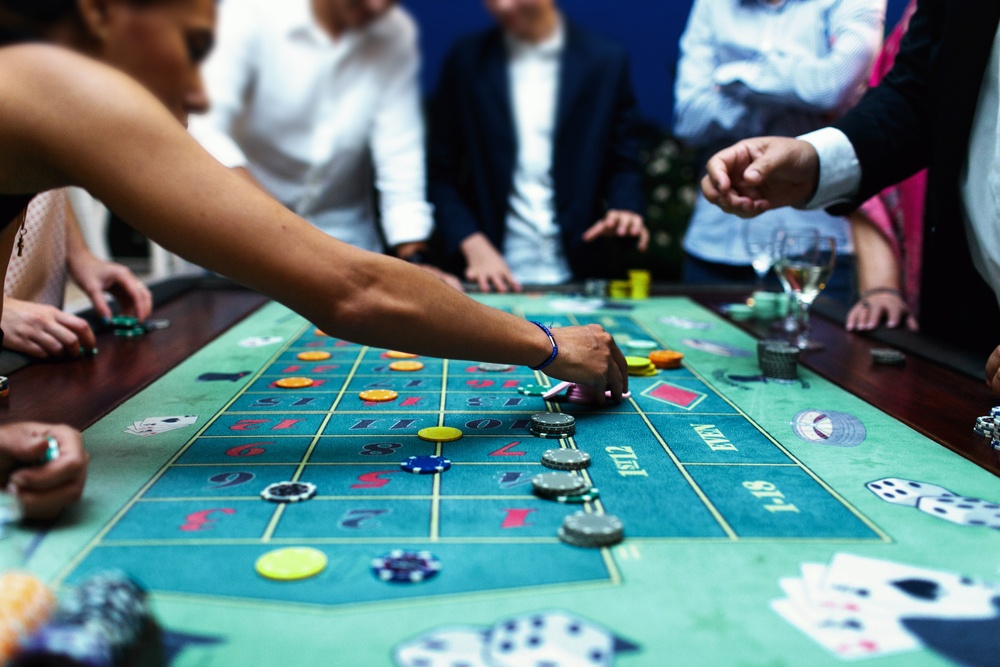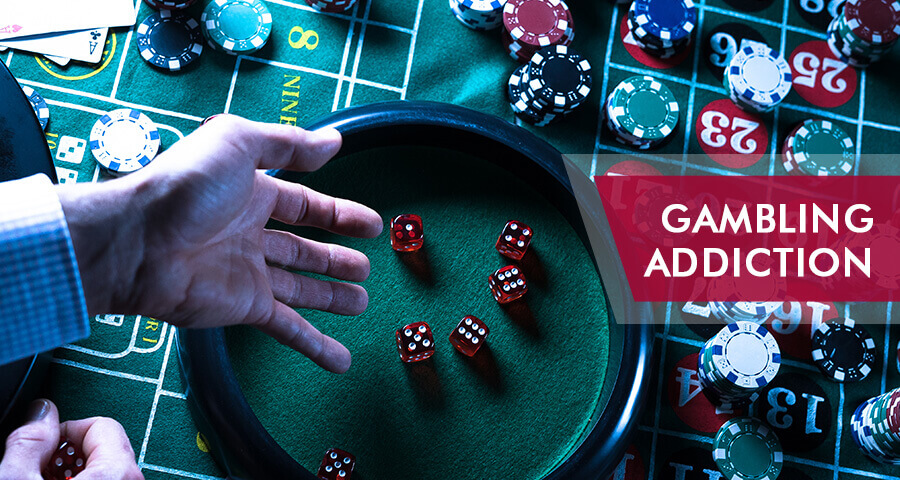Gambling Addiction Treatment
Gambling addiction can have devastating effects on individuals and their loved ones, but seeking treatment can provide a path to recovery and freedom.
This article explores the importance of seeking treatment for gambling addiction and highlights various therapy options, support groups, medication, and strategies for maintaining long-term recovery.
With an empathetic and knowledgeable approach trusted online casino Malaysia, we aim to provide valuable information for those seeking help and support in overcoming their gambling addiction.

The Importance of Seeking Treatment for Gambling Addiction
Seeking treatment for gambling addiction is crucial for individuals struggling with this condition to regain control over their lives and improve their overall well-being. Recognizing the warning signs of gambling addiction is the first step towards seeking help. These signs may include an increasing preoccupation with gambling, a need to gamble with larger amounts of money to experience the same level of excitement, unsuccessful attempts to cut back or stop gambling, and jeopardizing relationships, careers, or financial stability due to gambling.
The impact of gambling addiction on relationships can be devastating. It can lead to strained relationships with family members, friends, and romantic partners. The constant lies and deception to cover up the extent of their gambling can erode trust and create a sense of betrayal. Financial issues, such as mounting debts and unpaid bills, can cause conflicts and stress within relationships. The emotional toll of gambling addiction, such as guilt, shame, and depression, can also affect the individual’s ability to maintain healthy connections with others.
By seeking treatment, individuals can address these challenges and begin to rebuild their relationships. Treatment options for gambling addiction typically involve therapy, support groups, and, in some cases, medication. Therapy can help individuals understand the underlying causes of their addiction and develop healthier coping mechanisms. Support groups provide a safe space for individuals to share their experiences, receive support, and learn from others who have overcome similar challenges. Medication may be prescribed to help manage any underlying mental health conditions that may be contributing to the addiction.
Therapy Options for Gambling Addiction
One effective approach to addressing the issue of compulsive wagering is through various therapeutic methods that have been specifically designed to help individuals overcome their gambling-related challenges. Cognitive behavioral therapy (CBT) is one such therapeutic method that has shown promising results in treating gambling addiction.
CBT aims to identify and modify the negative thought patterns and behaviors that contribute to gambling addiction. By working with a trained therapist, individuals can gain a better understanding of their triggers and develop healthier coping mechanisms. This therapy focuses on helping individuals develop skills to resist the urge to gamble and replace destructive behaviors with more constructive ones.
Another treatment option for gambling addiction is residential treatment programs. These programs offer a comprehensive and structured approach to recovery, providing individuals with a supportive environment where they can focus solely on their recovery. Residential treatment programs typically include individual therapy, group therapy, educational workshops, and relapse prevention strategies.
It’s important to note that there is no one-size-fits-all approach to treating gambling addiction. Each individual is unique, and their treatment plan should be tailored to their specific needs and circumstances. That’s why it’s crucial to seek professional help from qualified therapists or addiction specialists who can guide individuals towards the most appropriate therapy options for their gambling addiction.
Support Groups for Gambling Addiction Recovery
Support groups can provide a valuable source of encouragement and understanding for individuals on their path to recovery from problem gambling. These groups create a safe and non-judgmental space where individuals can connect with others who are going through similar struggles. Whether in-person or online, support groups offer a sense of camaraderie and a platform where participants can share their experiences, challenges, and triumphs.
In the digital era, online resources have become increasingly important in supporting individuals with gambling addiction. Online support groups provide accessibility and convenience to those who may not have access to in-person meetings or prefer the anonymity of virtual platforms. These online communities offer a variety of resources, such as discussion forums, chat rooms, and educational materials, to help individuals gain insight into their addiction and develop effective coping strategies.
Self-help techniques are also a crucial component of gambling addiction recovery. Support groups often incorporate self-help principles, empowering individuals to take control of their recovery journey. These techniques may include setting goals, practicing mindfulness, implementing healthy habits, and seeking professional help when needed. By embracing self-help techniques, individuals can develop a sense of agency and regain control over their lives.

Medication for Treating Gambling Addiction
The use of medication has shown promise in addressing the underlying factors contributing to problematic gambling behaviors. While behavioral interventions and cognitive behavioral therapy (CBT) are widely recognized as effective treatments for gambling addiction, medication can be a valuable addition to the recovery process.
Medication can help individuals to manage the symptoms associated with gambling addiction, such as anxiety, depression, and impulsivity. It can also target the underlying neurochemical imbalances that contribute to addictive behaviors. For example, selective serotonin reuptake inhibitors (SSRIs) have been found to reduce impulsivity and cravings, while naltrexone, an opioid antagonist, can help to decrease the pleasurable effects of gambling.
It is important to note that medication should not be seen as a standalone treatment for gambling addiction. Rather, it should be used in conjunction with other therapies, such as behavioral interventions and CBT. These approaches can help individuals to develop healthier coping mechanisms, challenge distorted thoughts, and learn new strategies for managing triggers and cravings.
Ultimately, the decision to include medication in a treatment plan for gambling addiction should be made on an individual basis, taking into account the severity of the addiction and the specific needs of the person seeking treatment. It is recommended to consult with a healthcare professional who specializes in addiction medicine to determine the most appropriate course of action.
Strategies for Maintaining Long-Term Recovery From Gambling Addiction
Developing a strong support network and engaging in ongoing therapy can greatly increase the likelihood of maintaining long-term recovery from problematic gambling behaviors. Relapse prevention is a crucial aspect of this journey, as it helps individuals navigate the challenges that may arise and stay on the path of recovery. By implementing effective self-care techniques, individuals can equip themselves with the necessary tools to prevent relapse and sustain their progress.
One important self-care technique for relapse prevention is to identify and avoid triggers. This involves recognizing situations, people, or places that may tempt you to engage in gambling behavior. By steering clear of these triggers, you can minimize the risk of relapse.
Additionally, practicing stress management techniques such as mindfulness, deep breathing exercises, and regular physical activity can help individuals cope with stressors without resorting to gambling.
Another crucial aspect of maintaining long-term recovery is to prioritize self-care. This includes taking care of your physical, emotional, and mental well-being. Engaging in activities that bring joy and fulfillment, practicing self-compassion, and setting boundaries can all contribute to a healthier and more balanced lifestyle. It is important to remember that self-care is not selfish, but rather an essential part of maintaining recovery and overall well-being.
Conclusion
In conclusion, seeking treatment for gambling addiction is crucial for individuals looking to overcome their struggles.
Therapy options, such as cognitive-behavioral therapy and motivational interviewing, can help individuals address the underlying causes of their addiction and develop healthy coping mechanisms.
Support groups also provide a sense of community and understanding during the recovery process.
Medication may be used in some cases to manage the compulsive urges associated with gambling addiction.
By implementing these strategies and staying committed to their recovery, individuals can maintain long-term success in overcoming gambling addiction.…